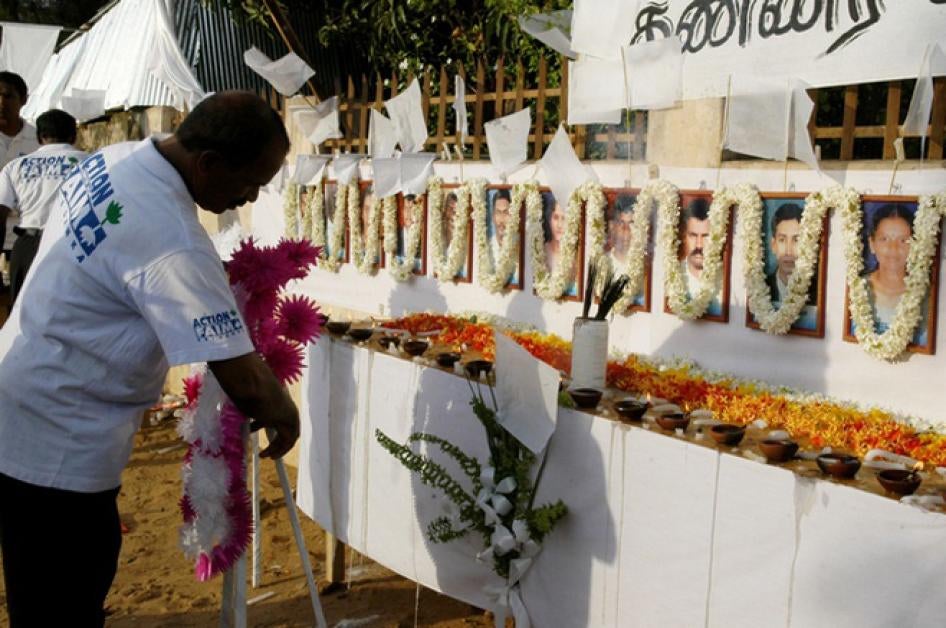“The house has been empty nearly 10 years,” the local aid worker told me. “No one wants to live there.” The small, one-storey building is enclosed by a low cement wall on a secluded, tree-lined street off the main thoroughfare in the town of Muttur, in Sri Lanka’s northeast. Its sky blue siding with white horizontal stripes gives the house an incongruous festive appearance.
I’ve often imagined the house in August 2006 after rebel fighters from the Liberation Tigers of Tamil Eelam (LTTE) had unexpectedly overrun the town. I could picture the 17 Sri Lankan staff members – all ethnic Tamils save one Muslim, including four women – of the Paris-based international aid agency Action Contre la Faim (Action Against Hunger, ACF) huddled inside the house waiting for the shooting and shelling to end.
When Sri Lankan security forces re-took Muttur after the LTTE’s sudden withdrawal, they reported a terrible sight: the bodies of 15 ACF workers lying face down in the courtyard with bullet wounds to their heads and necks. The shots were fired at point-blank range. The bodies of two more ACF workers making a futile escape attempt were found in a vehicle nearby.
Foreign journalists brought to the gruesome scene were informed that the LTTE was the culprit. However, inconsistencies in the military’s version of events and investigative reporting by Jaffna’s University Teachers for Human Rights have since debunked the official account. Instead the evidence strongly indicates that Sri Lankan police and navy special forces were responsible for the Mafia-style executions, not the LTTE.
The previous Sri Lankan government of President Mahinda Rajapaksa check-marked the ACF case as a priority for investigation. But Rajapaksa, under whose administration the LTTE was defeated in 2009 at a terrible cost in civilian lives, actively opposed serious war crime investigations.
This past January Sri Lankans elected a new administration more attuned to human rights concerns. President Maithripala Sirisena and his top ministers have endorsed accountability for wartime abuses by both sides, as reflected in a United Nations Human Rights Council resolution adopted in September. The ACF case is back on the agenda.
One sticking point is the extent to which foreign judges and prosecutors will play a role in a future war crimes tribunal. The government should recognize that there can only be justice for the ACF killings if all those responsible – not just the low-ranking triggermen – are held to account. An ACF trial may place witnesses, prosecutors and judges at risk of threats and violence from defendants and their sponsors, as in past politically charged cases. Foreign judges and prosecutors would be far less susceptible to such dangers. The ACF house in Muttur is now a forsaken tombstone for a massacre. But it could someday become a living center not just for the 17 aid workers who lost their lives there, but also for the countless Sri Lankans who risked all to bring aid to their embattled countrymen and women in the midst of a terrible war. For that, justice must first prevail.









